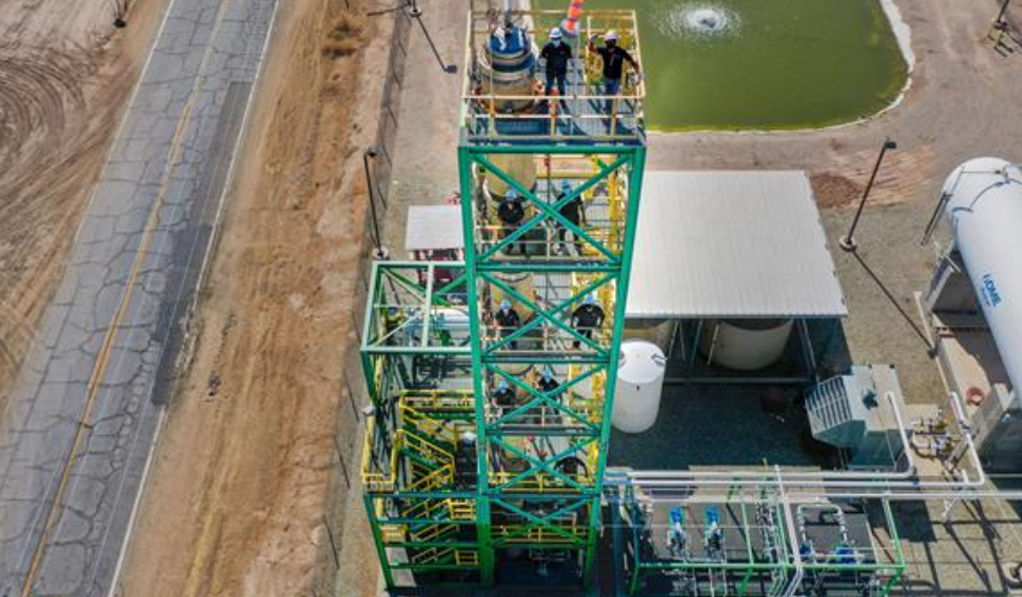Oberon Fuels, producer of clean-burning dimethyl ether (DME) transportation fuel, has begun production of the first-ever renewable DME (rDME) in the United States, and the only current commercial production of this molecule in the world. Because rDME’s properties allow it to cost-effectively store and transport renewable hydrogen, this milestone unlocks Oberon’s ability to reduce emissions from transportation today, while accelerating the development of the hydrogen economy and a net-zero carbon future.
As part of a $6 million project funded in part by a grant from the California Energy Commission, Oberon is converting waste methanol into rDME at its upgraded facility in Brawley, Calif. It is the first time this feedstock has been used to make rDME at commercial scale. In addition to waste methanol, other potential feedstocks include: biogas from dairy waste, food wastes, agricultural waste, as well as excess electricity and CO2, resulting in ultra-low carbon to carbon-negative DME.
“This is a critical step on the path to decarbonizing the transportation sector,” said Elliot Hicks, Chief Operating and Technology Officer and an Oberon Fuels co-founder. “Our innovative approach uses waste resources to create a flexible molecule that can reduce emissions from fossil fuels, as well as create entirely new, super-clean fuels.”
Renewable DME has multiple pathways to reducing the carbon footprint of the transportation sector: as a diesel replacement, as a blend with propane and as an energy-dense, cost-effective way to move renewable hydrogen. rDME can help overcome some of the biggest barriers inhibiting the widespread use of hydrogen for transportation fuel, including: access to renewable feedstocks; modular, scalable production; and energy-dense, cost-effective storage and transport. Once delivered, rDME can be converted to renewable hydrogen at the point of use.
DME is a hydrogen-rich molecule that handles like propane, or liquefied petroleum gas (LPG). It can be produced at or near renewable feedstock sources using Oberon’s modular production technology. This novel approach to renewable hydrogen production promises similarities to the influence that distributed, rooftop solar has had on decentralizing industrial power generation.
Moreover, because rDME is compatible with LPG, it requires minimal modifications to the existing global LPG distribution network and workforce, which have been safely handling and transporting similar molecules for more than a century.


Recent Posts
DPIIT promotes green logistics industry
Petronet LNG reports record volumes
TotalEnergies buys stake in wind farm to produce green hydrogen
Ports of Indiana, Port of Antwerp-Bruges partner on green shipping
Bhutan moves towards green transition
GCMD completes biofuel supply chain trials with Hapag-Lloyd
Airbus partners with Avolon on hydrogen aviation
Nuclear power transition more safe option for decarbonisation than coal